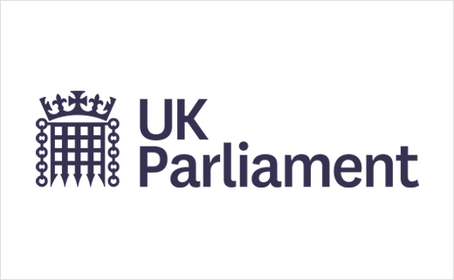The ICC will not conduct a full investigation. What was said about serious crimes? And the Overseas Operations Bill?
The International Criminal Court’s (ICC) Prosecutor recently closed her preliminary enquiry into allegations that UK soldiers committed international crimes in Iraq. This means a full investigation will not take place.
The Final Report found the UK’s ongoing internal investigations to be genuine. But what did the report say about whether serious crimes may have been committed? And what was said about the Overseas Operations Bill currently before Parliament?
The International Criminal Court’s (ICC) Prosecutor recently closed her preliminary enquiry into allegations that UK soldiers committed international crimes in Iraq. This means a full investigation will not take place.
The Final Report found the UK’s ongoing internal investigations to be genuine. But what did the report say about whether serious crimes may have been committed? And what was said about the Overseas Operations Bill currently before Parliament?
What did the Prosecutor decide?
The Office of the Prosecutor decided to close its examination of allegations against UK officials in Iraq. The Prosecutor had to decide whether the situation met the criteria for opening a full investigation into the situation.
The ICC will only open a full investigation where:
This left the Prosecutor to establish whether the UK was unwilling or unable to genuinely investigate or prosecute. Since 2010, UK governments have investigated through the Iraq Historic Allegations Team and the Service Police Legacy Investigations .
To decide whether these investigations are genuine, the Prosecutor had to make sure they were not designed to shield suspects from prosecution. The Prosecutor decided that allegations of shielding could not be substantiated. There was not enough evidence to say that the UK’s ongoing investigations were not genuine.
What did the Prosecutor say about war crimes in Iraq?
The Prosecutor found there is a “reasonable basis” to believe that members of the UK armed forces committed war crimes of:
Are the UK’s internal investigations into war crimes enough?
The Prosecutor found the Army’s initial investigations were “inadequate” and lacked a “genuine effort” to be independent or impartial but that these findings were not “controversial” because of the “admitted failures of the British army at the time”.
In 2010, the Labour Government set up the Iraq Historic Allegations Team (IHAT) to investigate allegations against UK Armed Forces in Iraq. This continued and widened under the Coalition Government. It was replaced by the Service Police Legacy Investigations (SPLI) in 2017.
IHAT and SPLI have not resulted in any prosecutions – an outcome the ICC Prosecutor said “deprived the victims of justice.”
IHAT explained to the Prosecutor that the cases lacked forensic evidence, and testimonies were inconsistent because of the historical nature of the investigations. The Prosecutor said the Army’s original “inadequate” investigations contributed to this.
Allegations from BBC Panorama
The Prosecutor further investigated allegations from a BBC Panorama documentary about the possibility that officials “covered up” the alleged crimes by disregarding or undermining evidence, or preventing or terminating investigations.
After obtaining new statements from former IHAT members and senior SPLI officials, the Prosecutor concluded that the explanations offered for these allegations appeared generally reasonable. But the Prosecutor explicitly refused to rule out some allegations, concluding there was insufficient evidence to say that UK authorities had shielded suspects from prosecution.
The Prosecutor expressed concern over:
The Prosecutor looked at the Overseas Operations (Service Personnel and Veterans) Bill 2019-21 when considering whether the UK Government was unwilling to genuinely prosecute the relevant crimes.
The Bill creates a presumption against prosecution in some circumstances. These are for allegations against service personnel which occurred more than five years ago. But the ICC Rome Statute prohibits “statutes of limitations” for international crimes.
The Prosecutor said arguments that the Bill curbed claims being brought without merit against UK soldiers (the phenomena of vexatious litigation) were “considerably exaggerated”.
The UK government told the Prosecutor that the Bill “bears no resemblance to a legislative bar to investigations or prosecutions, such as a statute of limitations or amnesty.” But the ICC Prosecutor warned that using such a law to block future investigations or prosecutions of crimes in Iraq could result in these cases to be brought before the ICC.
The UK Government told the ICC that the Bill will have no impact on any cases currently being within the UK. The Government also said that “all allegations of serious offences … will be investigated and, where appropriate, prosecuted.” The Prosecutor argued that this commitment would be clearer if all international crimes were listed as exceptions in the Bill.
The Prosecutor will continue to monitor the legislation and any further developments.
Further Reading
Source (Click Here)
The Office of the Prosecutor decided to close its examination of allegations against UK officials in Iraq. The Prosecutor had to decide whether the situation met the criteria for opening a full investigation into the situation.
The ICC will only open a full investigation where:
- The Court has jurisdiction;
- The crimes alleged are serious enough to reach a ‘gravity threshold’;
- The relevant state is unwilling or unable to genuinely investigate or prosecute.
This left the Prosecutor to establish whether the UK was unwilling or unable to genuinely investigate or prosecute. Since 2010, UK governments have investigated through the Iraq Historic Allegations Team and the Service Police Legacy Investigations .
To decide whether these investigations are genuine, the Prosecutor had to make sure they were not designed to shield suspects from prosecution. The Prosecutor decided that allegations of shielding could not be substantiated. There was not enough evidence to say that the UK’s ongoing investigations were not genuine.
What did the Prosecutor say about war crimes in Iraq?
The Prosecutor found there is a “reasonable basis” to believe that members of the UK armed forces committed war crimes of:
- Wilful killing
- Torture
- Inhuman/cruel treatment
- Outrages upon personal dignity
- Rape and/or other forms of sexual violence
Are the UK’s internal investigations into war crimes enough?
The Prosecutor found the Army’s initial investigations were “inadequate” and lacked a “genuine effort” to be independent or impartial but that these findings were not “controversial” because of the “admitted failures of the British army at the time”.
In 2010, the Labour Government set up the Iraq Historic Allegations Team (IHAT) to investigate allegations against UK Armed Forces in Iraq. This continued and widened under the Coalition Government. It was replaced by the Service Police Legacy Investigations (SPLI) in 2017.
IHAT and SPLI have not resulted in any prosecutions – an outcome the ICC Prosecutor said “deprived the victims of justice.”
IHAT explained to the Prosecutor that the cases lacked forensic evidence, and testimonies were inconsistent because of the historical nature of the investigations. The Prosecutor said the Army’s original “inadequate” investigations contributed to this.
Allegations from BBC Panorama
The Prosecutor further investigated allegations from a BBC Panorama documentary about the possibility that officials “covered up” the alleged crimes by disregarding or undermining evidence, or preventing or terminating investigations.
After obtaining new statements from former IHAT members and senior SPLI officials, the Prosecutor concluded that the explanations offered for these allegations appeared generally reasonable. But the Prosecutor explicitly refused to rule out some allegations, concluding there was insufficient evidence to say that UK authorities had shielded suspects from prosecution.
The Prosecutor expressed concern over:
- IHAT’s and SPLI’s filtering of allegations of crimes after the Solicitors Regulation Authority found misconduct against a lawyer who brought thousands of allegations to the investigations. Although the lawyer had brought some false allegations, the Prosecutor was concerned by how much this was relied upon by IHAT/SPLI to close some investigations that may still have merit.
- allegations that cases were prematurely terminated or that there was pressure not to pursue them; and
- the strain that IHAT came under before the Government announced it would be closed down early in 2017.
The Prosecutor looked at the Overseas Operations (Service Personnel and Veterans) Bill 2019-21 when considering whether the UK Government was unwilling to genuinely prosecute the relevant crimes.
The Bill creates a presumption against prosecution in some circumstances. These are for allegations against service personnel which occurred more than five years ago. But the ICC Rome Statute prohibits “statutes of limitations” for international crimes.
The Prosecutor said arguments that the Bill curbed claims being brought without merit against UK soldiers (the phenomena of vexatious litigation) were “considerably exaggerated”.
The UK government told the Prosecutor that the Bill “bears no resemblance to a legislative bar to investigations or prosecutions, such as a statute of limitations or amnesty.” But the ICC Prosecutor warned that using such a law to block future investigations or prosecutions of crimes in Iraq could result in these cases to be brought before the ICC.
The UK Government told the ICC that the Bill will have no impact on any cases currently being within the UK. The Government also said that “all allegations of serious offences … will be investigated and, where appropriate, prosecuted.” The Prosecutor argued that this commitment would be clearer if all international crimes were listed as exceptions in the Bill.
The Prosecutor will continue to monitor the legislation and any further developments.
Further Reading
- Situation in Iraq/UK – Final Report, ICC Office of the Prosecutor, 9 December 2020.
- Statement of the Prosecutor, Fatou Bensouda, on the conclusion of the preliminary examination of the situation in Iraq/United Kingdom, ICC , 9 December 2020.
- Report on Preliminary Examination Activities 2020, ICC Office of the Prosecutor, 14 December 2020.
- Recent Developments at the International Criminal Court, House of Commons Library.
- Overseas Operations (Service Personnel and Veterans) Bill 2019-21, House of Commons Library.
- Has anything changed in the Overseas Operations Bill?: Committee Stage report, House of Commons Library.
Source (Click Here)



 RSS Feed
RSS Feed